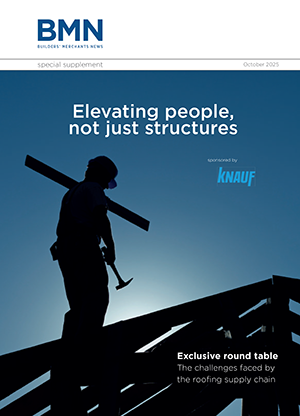UK: Construction activity was largely confined to the commercial sub-sector in July, as housebuilding and civil engineering activity continued to decline, according to the seasonally adjusted Markit/CIPS Construction Purchasing Managers' Index PMI.
The latest reduction in civil engineering was the second-fastest since September 2011. July data indicated a further reduction in new work received by construction companies.
Although the rate of decline eased over the month, it was still the second-fastest since January 2010. Survey respondents widely cited a lack of new opportunities to tender and a general weakness in underlying market demand.
UK construction companies reported a second consecutive monthly reduction in purchasing activity at their units. The rate of reduction in input buying was only moderate, albeit the second-fastest since November 2010. Anecdotal evidence linked the latest decline to falling volumes of new work and, in some cases, efforts to streamline stocks.
Suppliers' delivery times meanwhile lengthened sharply in July, which some respondents attributed to delayed deliveries around London in the run-up to the Olympics. The latest overall deterioration in vendor performance was the most marked since February 2011. Moreover, longer supplier lead-times have now been recorded for almost two years in a row.
Input prices increased in July, thereby extending the current period of cost inflation to two-and-a-half years. However, the latest increase was relatively subdued and slower than the long-run series average. Construction companies noted that higher energy and fuel costs were the main reasons for rising input prices during July. Meanwhile, rates charged by sub-contractors declined for the fourth month running and at the fastest pace since June 2011. Sub-contractor availability increased at the slowest rate since November 2007.
The latest data shows that more than twice as many construction firms anticipate an increase in business activity over the year ahead as those that forecast a decline.
As a result, survey respondents remain optimistic overall that output will rise in 12 months' time, and the degree of positive sentiment was the strongest since April.
Anecdotal evidence cited a gradual rebound in output, boosted by the resumption of delayed projects. Confidence about the outlook for activity helped support a marginal rise in employment in July, which was the fourth increase in the past five months.
Said Tim Moore, senior economist at Markit and author of the Markit/CIPS Construction PMI: "July's survey offered little sign of an imminent rebound in the UK construction sector, with total activity rising only marginally after well documented temporary factors had weighed on output last month. Another drop in new orders, alongside wet weather conditions, meant a soft platform from which construction output could bounce in July.
"The pace of new order decline was one of the fastest seen in the past three years, and consequently there was just a meagre post-Jubilee expansion of activity levels.
"The survey shows that some construction firms are expecting, or at least hoping, that the sector will receive a shot in the arm during the next 12 months. A slow and gradual recovery remains most firms' base scenario, with some anticipating a boost from deferred projects going ahead later in the year. This in turn pushed business sentiment up from June's recent low and supported employment trends across the industry in July."
David Noble, chief executive officer at the Chartered Institute of Purchasing & Supply, said: "Last month's construction performance was so bad, that this month there was hope for a positive turnaround.
"There was some progress, with a slight boost in performance, but the external operating environment remains depressed.
'While the modest growth in July has been driven by the commercial sector, housing and civil engineering continue to lag.
"The sharp drop in new business means there is little chance of the sector rebounding quickly. Howeve,r optimism remains, with increased employment and retention of sub-contractors. While this is encouraging, the relative stability of construction employment is partly a reflection of just how steep the job cuts were in the lead-up to the double-dip.
"Companies were hoping for a post-Olympics fillip. Based on today's figures, the overall likelihood of that happening has dwindled."






